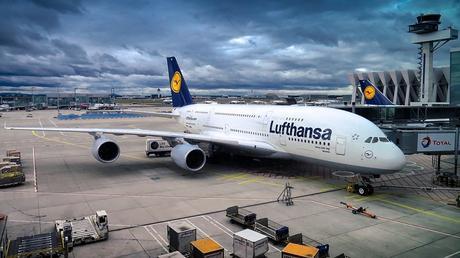Brexit is the word that has all Europe in a state of turmoil. The referendum that took place on 23 June 2016 decided that the UK should no longer be a member of the European Union, leaving everybody with many unanswered questions. How will things change for the British and the rest of Europe?
The exit process will take a long time and it will bring a lot of changes, but right now we will focus on what will change regarding traveling to Europe after Brexit, in terms of passports, visas and flights.
Passports: Red or Blue?
Many people are wondering what will happen with the current passports that have the European Union written in gold on the top of the cover. Will they have to be changed? Authorities say that there won’t be immediate consequences or a pressing need to renew them.
It will, indeed, be incredibly difficult to change around 42.5 million UK passports, so it’s safe to say that Brexiteers are not likely to get an early renewal. People may be thinking that going back to the blue pre-union passport would be a great idea, but the color won’t matter as much when everybody will be joining the extra-lengthy queue of ‘Non-EU citizens’ at border control.
Visas: Yes or No?
Brexit also poses some questions regarding the future of borderless travels. As stated above, being required to join the non-EU citizens queue will definitely mean that UK passport holders will have to spend more time at the airport. But the question of needing visas is one that preoccupies everybody, due to the fact that getting one can take a lot of time, which means that spontaneous trips to Europe, city breaks or emergency travels will be made a lot harder.
There is also the problem of a possible dissolution of the Schengen Agreement – through which border checks for those crossing the border between member states were removed – which would mean that multiple visas would be needed. There are also rumors concerning the implementation of a ‘holiday tax’, similar to the American one, and payments enforced by the Schengen Area. It is also important to take notice of the fact that the European Parliament has decided to abolish roaming charges come June 2017, which means that, after leaving the EU, UK travellers will be paying high roaming charges.
It is also important to take notice of the fact that the European Parliament has decided to abolish roaming charges come June 2017, which means that, after leaving the EU, UK travellers will be paying high roaming charges.
What About Flight Compensation?

The EU has regulations (known as the EU Passenger Rights Directive) that dictate what the airlines are supposed to do in terms of delays of two or more hours. If you went on a holiday in Europe before Brexit, you were covered, but for those who seek holiday claims compensation from the airlines after Brexit, things are unclear. Given the fact that any kind of compensation, including financial, was covered by the EU legislation, it may become more difficult for UK travellers to get their money back.
In conclusion, there are a few potential changes UK travellers face once Britain is no longer a member of the EU. Being aware of said changes is vital in order to be prepared for the eventual extra costs and the extra preparations required when traveling to Europe.

